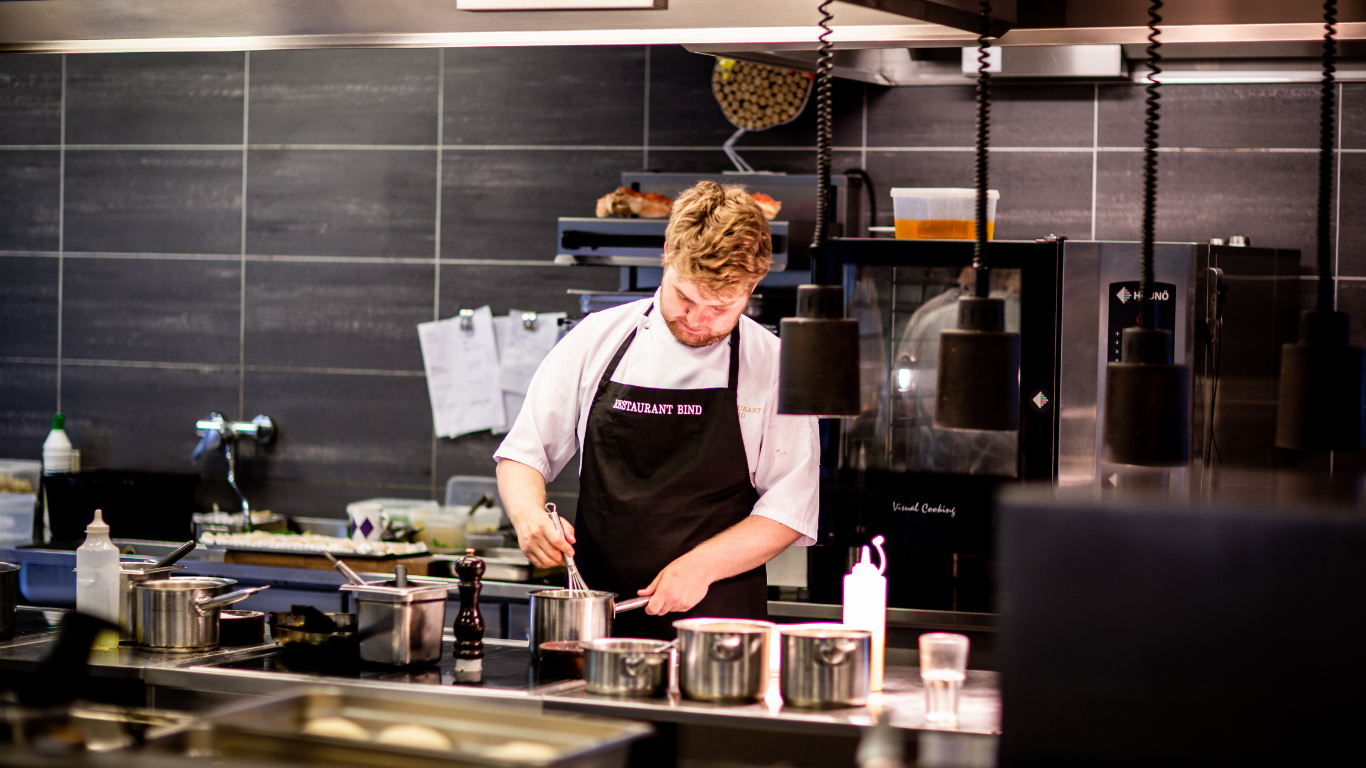
Talking to the Chef
Learn how to politely ask to speak with the chef to give thanks or ask a question. This is a great way to show your appreciation and get more information about the food.
BEGINNER
Vocabulary
chef
The main cook in a restaurant.
- Can I say thank you to the chef?
- The chef made a delicious meal.
- The chef is very talented.
sauce
A liquid served with food to add moisture and flavor.
- What is in the sauce?
- The pasta has a tomato sauce.
- I like extra sauce on my dish.
Grammar Tip: Using 'Can I...?'
The phrase 'Can I...?' is a simple and polite way to ask for permission or make a request. You can use it for many things. For example, 'Can I have some water?' or 'Can I say thank you to the chef?'
Common Mistakes
❌ Using 'cook' instead of 'chef.'
✅ Say 'chef' when talking about the professional who cooks in a restaurant.
'Chef' is the professional term. While 'cook' is not wrong, 'chef' is more respectful and shows you know the right word to use.
❌ Asking to see the chef without a good reason.
✅ Always give a reason, like 'I really liked the food' or 'I have a question about the sauce.'
Chefs are very busy. Giving a good reason shows you are polite and respect their time. Most times, the waiter can bring your message to the chef for you.
Notes for Learners
- Be ready for the waiter to act as the middle person between you and the chef.
- The key phrases are 'Can I say thank you to the chef?' and 'Can I also ask...?'
- Be ready to hear what the waiter has to say after they speak with the chef.
- Remember to say 'thank you' to the waiter for their help.
INTERMEDIATE
Vocabulary
compliment
An expression of praise, admiration, or respect.
- Can I send a compliment to the chef?
- She gave me a nice compliment on my new dress.
- The chef was happy to get the compliment.
seasoning
Salt, herbs, or spices added to food to improve its flavor.
- What seasoning did the chef use?
- This chicken has a lot of seasoning.
- I love the seasoning on this steak.
Grammar Tip: Using 'I was wondering if...'
The phrase 'I was wondering if...' is a very polite and indirect way of asking a question. It is great for when you are asking for a favor or for information that might be a bit difficult to provide.
Common Mistakes
❌ Just saying 'tell the chef.'
✅ Use a more polite phrase, like 'I was wondering if it would be possible to send a compliment to the chef?'
This shows a higher level of English and is more respectful. It sounds less like a demand and more like a polite request.
❌ Not giving a specific compliment.
✅ Give a specific detail about what you liked, like 'The steak was absolutely perfect.'
A specific compliment is more meaningful to the chef. It shows you were paying attention and truly enjoyed their work.
Notes for Learners
- Be ready for the waiter to act as the middle person between you and the chef.
- Use more advanced vocabulary to give your positive feedback.
- Ask a specific question about the food, like 'what seasoning he used?'
- Acknowledge the waiter's politeness and help with a phrase like 'Thank you so much.'
ADVANCED
Vocabulary
delightful
Giving great pleasure; charming.
- We had a delightful meal.
- The service was delightful.
- She has a delightful smile.
exquisite
Extremely beautiful and delicate.
- The salmon was simply exquisite.
- The painting was exquisite.
- She has exquisite taste in clothing.
Grammar Tip: Using 'I trust...'
The phrase 'I trust...' is a very formal and polite way to start a conversation. It shows that you assume the other person is doing a good job and that you have confidence in them.
Common Mistakes
❌ Using simple words to give praise.
✅ Use more formal and professional words like 'delightful' and 'exquisite.'
These words are more formal and show a higher level of fluency. They are commonly used in a professional restaurant setting and make your language sound more elegant and sincere.
❌ Asking for too much of the chef's time.
✅ Use a phrase like 'I was hoping I might have a brief word...' to show you respect the chef's time.
This shows a high level of politeness and respect. It's a key part of advanced communication to make the other person feel appreciated for their work.
Notes for Learners
- Be ready for a more formal and professional conversation with the waiter.
- Use advanced phrases to make your request, like 'I was hoping I might have a brief word...'
- Be ready to hear formal words from the waiter, like 'convey' or 'culinary style.'
- Acknowledge the waiter's professionalism and thank them for their 'assistance.'